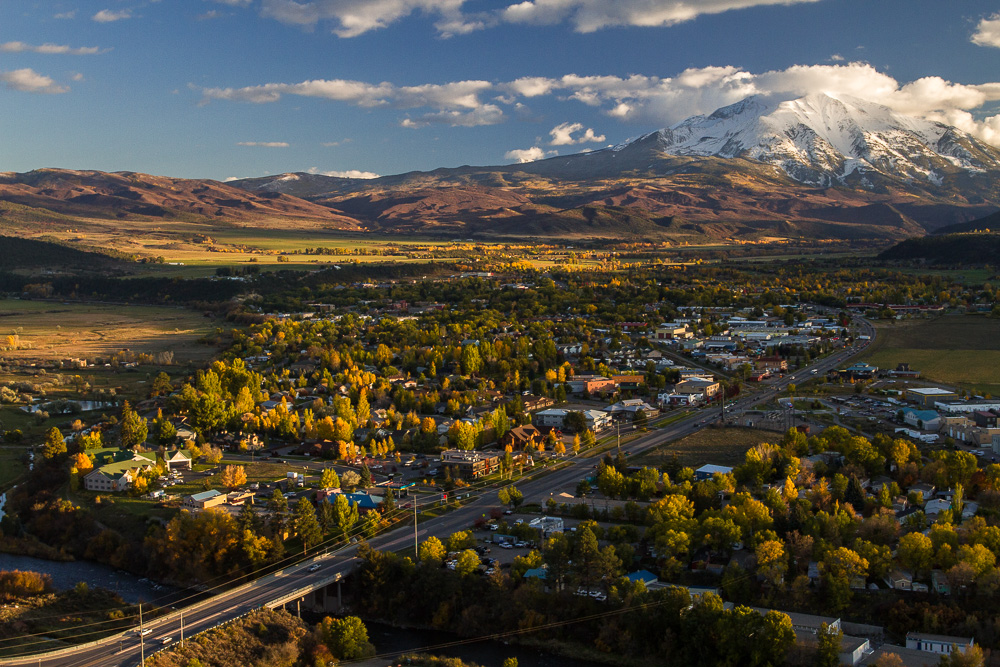
The Carbondale Community Geothermal Coalition has been awarded a grant of USD 716,000 for the feasibility, modeling, design, and planning of a large-scale geothermal heating and cooling system that will supply a 16-acre block of institutional and residential buildings.
Carbondale was one of 11 communities across 10 states that have been awarded grants by the U.S. Department of Energy (DOE) for the design and eventual deployment of community geothermal heating and cooling systems. Under the initiative, the Geothermal Technologies Office (GTO) is funding U.S.-based urban/suburban, rural, or remote community coalitions to develop, design, and install community geothermal heating and cooling systems that supply at least 25% of the heating and cooling load in communities. Carbondale was one of four communities chosen under the ‘rural’ category.
The Carbondale Community Geothermal Coalition is led by the Clean Energy Economy for the Region (CLEER) and includes the Town of Carbondale, the Third Street Center, the National Renewable Energy Laboratory, Garfield County Public Libraries District, Roaring Fork School District and national geothermal consulting firm GreyEdge Group. There are also plans to collaborate with Colorado Mountain College to explore opportunities for workforce training and development.
About the project
The project will be a shared geothermal system for a proposed district from Third Street Center to the Carbondale Library, including the townhomes on 2nd street. This area was selected because its highly visible location and its range of building types.
The proposed system will consist of a field of dozens of narrow boreholes connected to a circuit that runs across the district. The system will have heat pumps replacing the furnaces and boilers in the buildings. Instead of relying on very hot water or steam, the system taps the low-grade heat found underground almost everywhere.
The Third Street Center is an important part of the project. The building is already “net zero” in terms of its electricity consumption but still remains the largest consumer of energy in the district because of its reliance on natural gas for heating. As CLEER innovation manager Dr. Jon Fox-Rubin describes it, the building “illustrates both the progress that the town has made on clean energy, and also the opportunities for further improvement.
The system will initially supply about half the heating and cooling needs of the district, with an option to scale up to 100%. The purpose for the project is to demonstrate the feasibility of a geothermal heating and cooling system that will be economical even in older existing buildings. Given the need to retrofit some of the buildings’ heating infrastructure, a full transition may take five or more years.
Next steps
The work funded by the DOE grant is expected to be completed over the next year. After the design phase, additional funding may be secured by a second competitive phase to be opened by the DOE.
Throughout the next year, the project team will evaluate the geothermal potential of the site, model and design the system, design the retrofits needed for the buildings, and develop a funding proposal for the DOE to build the system. Fox-Rubin indicated that most of the DOE funding will go towards the team of engineering and building experts, as well as the test site drilling.
The plan is to drill one or two test wells on the property adjacent to the Third Street Center. A drilling company had already been contracted for this work. Thermal conductivity testing will then be done to determine the thermal properties of the subsurface under the project site.
“This is such an exciting opportunity to showcase a really innovative, impactful clean-energy solution right here in Carbondale. This will enable us to explore another approach to reduce or eliminate our dependence on natural gas for heat,” said Carbondale Mayor Ben Bohmfalk.